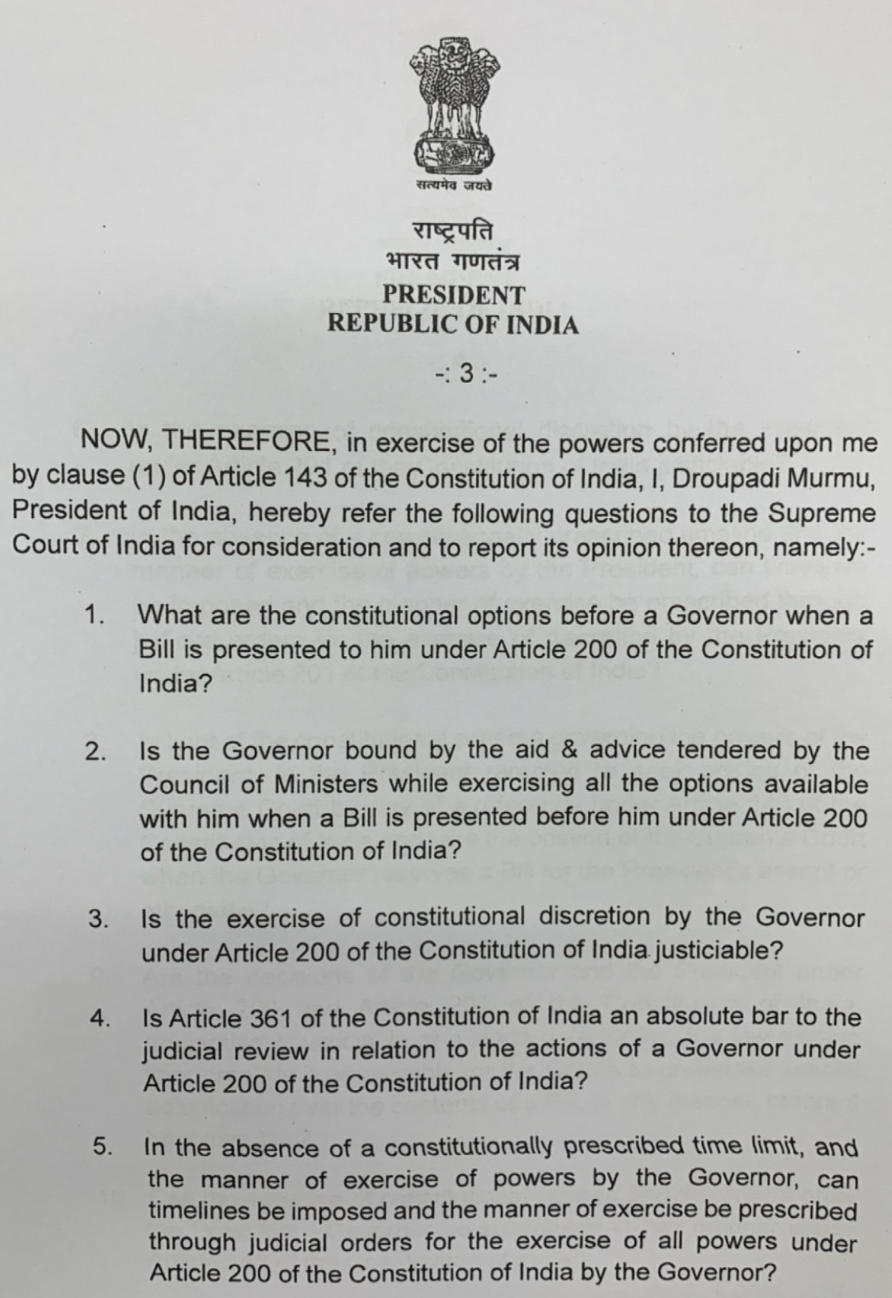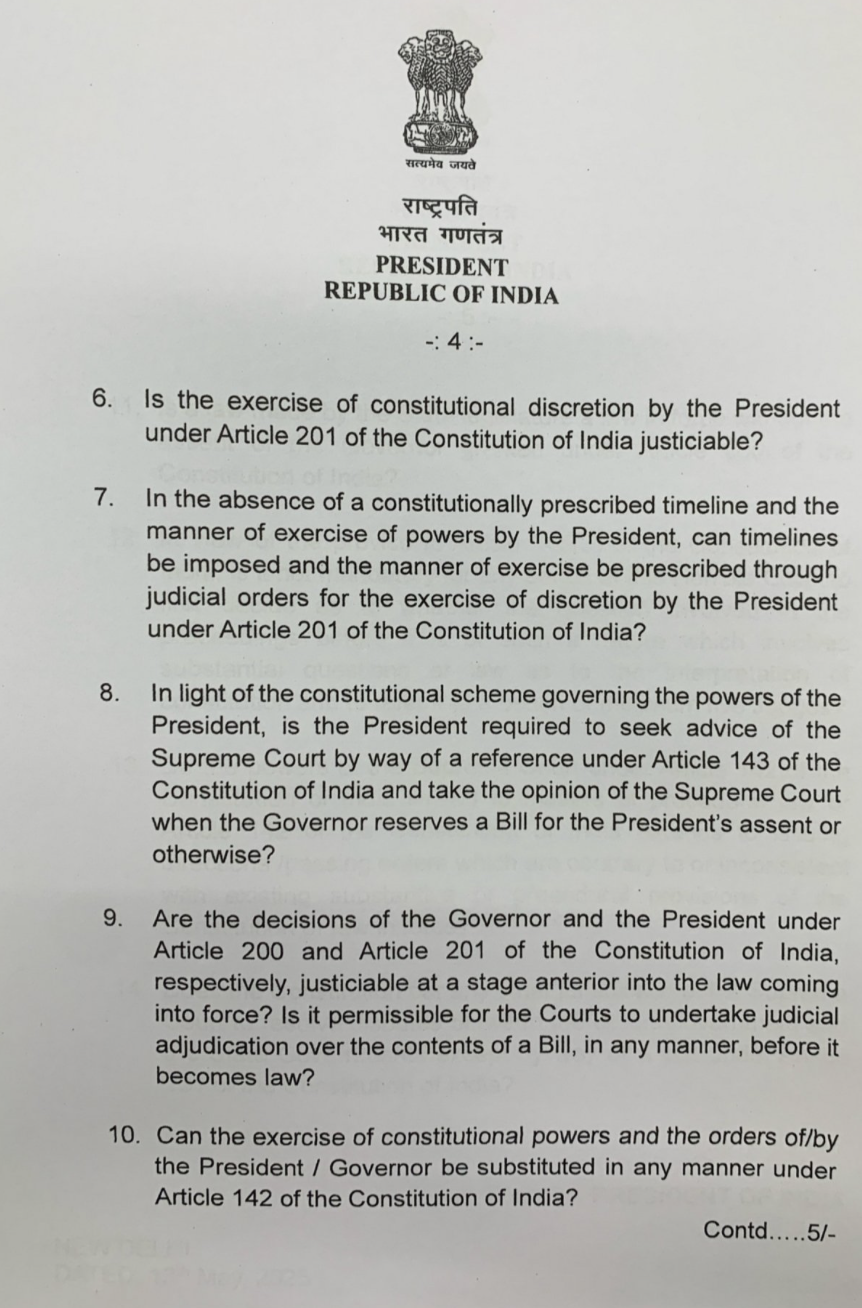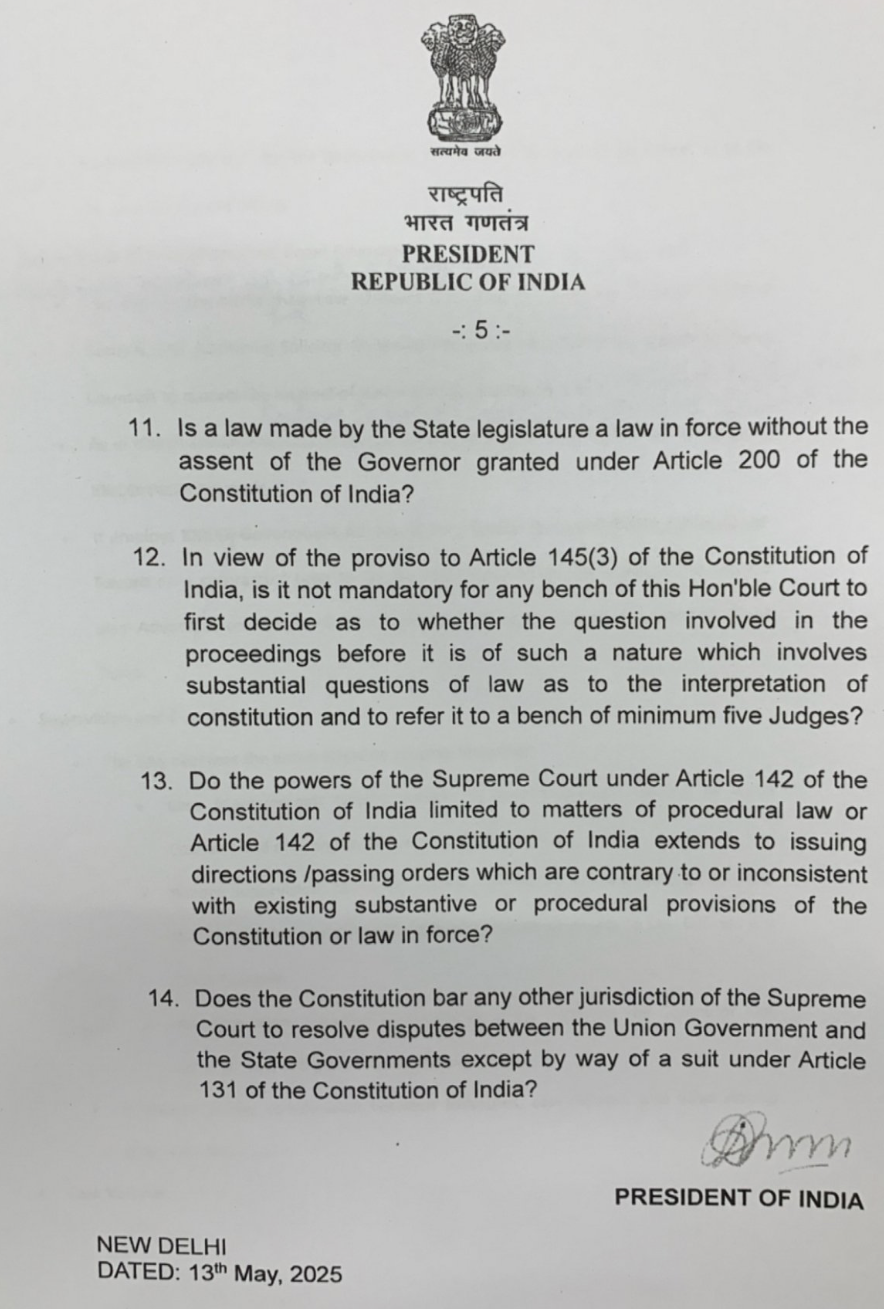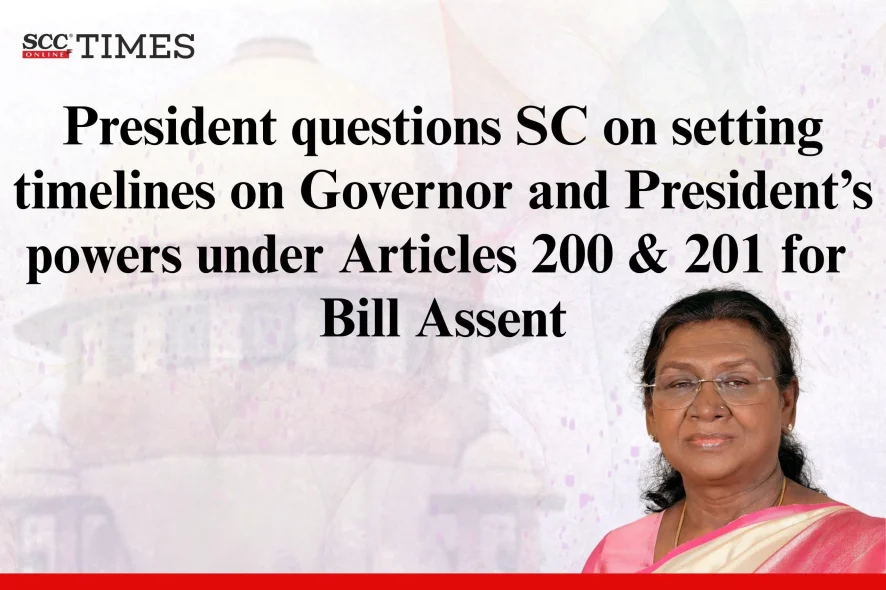In reference to the Supreme Court’s verdict in State of T.N. v. Governor of T.N., 2025 SCC OnLine SC 770, wherein, the Court prescribed a time-limit for the exercise of power under Article 200, the President of India in exercise of the powers conferred under Article 143(1) of the Constitution of India, referred the following questions to the Supreme Court of India:
1. What are the constitutional options before a Governor when a Bill is presented to him under Article 200 of the Constitution of India?
2. Is the Governor bound by the aid & advice tendered by the Council of Ministers while exercising all the options available with him when a Bill is presented before him under Article 200 of the Constitution of India?
3. Is the exercise of constitutional discretion by the Governor under Article 200 of the Constitution of India justiciable?
4. Is Article 361 of the Constitution of India an absolute bar to the judicial review in relation to the actions of a Governor under Article 200 of the Constitution of India?
5. In the absence of a constitutionally prescribed time limit, and the manner of exercise of powers by the Governor, can timelines be imposed and the manner of exercise be prescribed through judicial orders for the exercise of all powers under Article 200 of the Constitution of India by the Governor?
6. Is the exercise of constitutional discretion by the President under Article 201 of the Constitution of India justiciable?
7. In the absence of a constitutionally prescribed timeline and the manner of exercise of powers by the President, can timelines be imposed and the manner of exercise be prescribed through judicial orders for the exercise of discretion by the President under Article 201 of the Constitution of India?
8. In light of the constitutional scheme governing the powers of the President, is the President required to seek advice of the Supreme Court by way of a reference under Article 143 of the Constitution of India and take the opinion of the Supreme Court when the Governor reserves a Bill for the President’s assent or otherwise?
9. Are the decisions of the Governor and the President under Article 200 and Article 201 of the Constitution of India, respectively, justiciable at a stage anterior into the law coming into force? Is it permissible for the Courts to undertake judicial adjudication over the contents of a Bill, in any manner, before it becomes law?
10. Can the exercise of constitutional powers and the orders of/by the President / Governor be substituted in any manner under Article 142 of the Constitution of India?
11. Is a law made by the State legislature a law in force without the assent of the Governor granted under Article 200 of the Constitution of India?
12. In view of the proviso to Article 145(3) of the Constitution of India, is it not mandatory for any bench of this Hon’ble Court to first decide as to whether the question involved in the proceedings before it is of such a nature which involves substantial questions of law as to the interpretation of constitution and to refer it to a bench of minimum five Judges?
13. Do the powers of the Supreme Court under Article 142 of the Constitution of India limited to matters of procedural law or Article 142 of the Constitution of India extends to issuing directions /passing orders which are contrary to or inconsistent with existing substantive or procedural provisions of the Constitution or law in force?
14. Does the Constitution bar any other jurisdiction of the Supreme Court to resolve disputes between the Union Government and the State Governments except by way of a suit under Article 131 of the Constitution of India?
In 8th April verdict, the Court opined that the concept of ‘pocket veto’/ ‘absolute veto’ finds no place within the constitutional scheme and mechanism envisaged under Article 200 of the Constitution and despite there being no prescribed time-limit, Article 200 of the Constitution cannot be read in a manner which allows the Governor to not take action upon bills which are presented to him for assent and thereby delay and essentially roadblock the law-making machinery in the State.
The Court went on to prescribe a time-limit for the exercise of power under Article 200, which was guided by the inherent expedient nature of the procedure prescribed under the Article:
-
In case of either withholding of assent or reservation of the bill for the consideration of the President, upon the aid and advice of the State Council of Ministers, the Governor is expected to take such an action forthwith, subject to a maximum period of 1 month.
-
In case of withholding of assent contrary to the advice of the State Council of Ministers, the Governor must return the bill together with a message within a maximum period of 3 months.
-
In case of reservation of bills for the consideration of the President contrary to the advice of the State Council of Ministers, the Governor shall make such reservation within a maximum period of 3 months.
-
In case of presentation of a bill after reconsideration in accordance with the first proviso, the Governor must grant assent forthwith, subject to a maximum period of 1-month.
Regarding Article 201 of the Constitution clarified that there is no ‘pocket veto’ or ‘absolute veto’ available to the President in discharge of functions under Article 201. The use of the expression “shall declare” makes it mandatory for the President to make a choice between the two options available under the substantive part of Article 201, that is, to either grant assent or to withhold assent to a bill. The constitutional scheme does not, in any manner, provide that a constitutional authority can exercise its powers under the Constitution arbitrarily. This necessarily implies that the withholding of assent under Article 201 is to be accompanied by the furnishing of reasons for such withholding.










